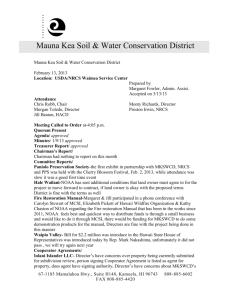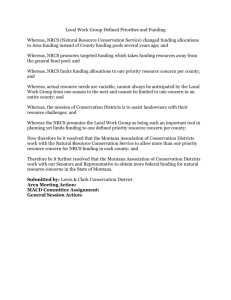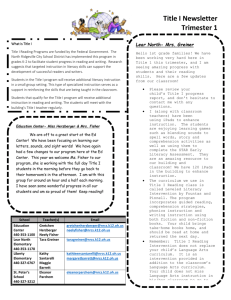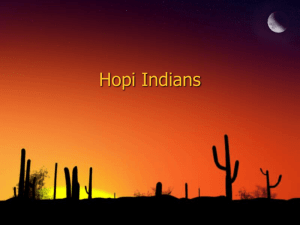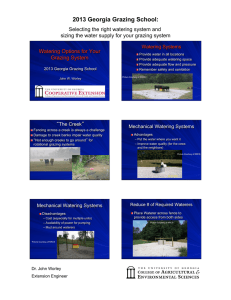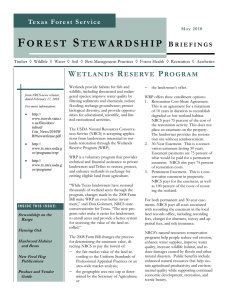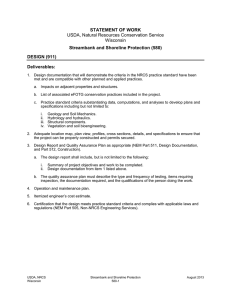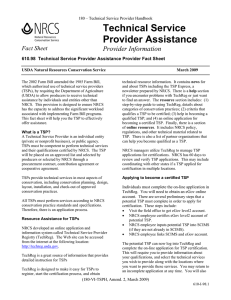Document 11265727
advertisement
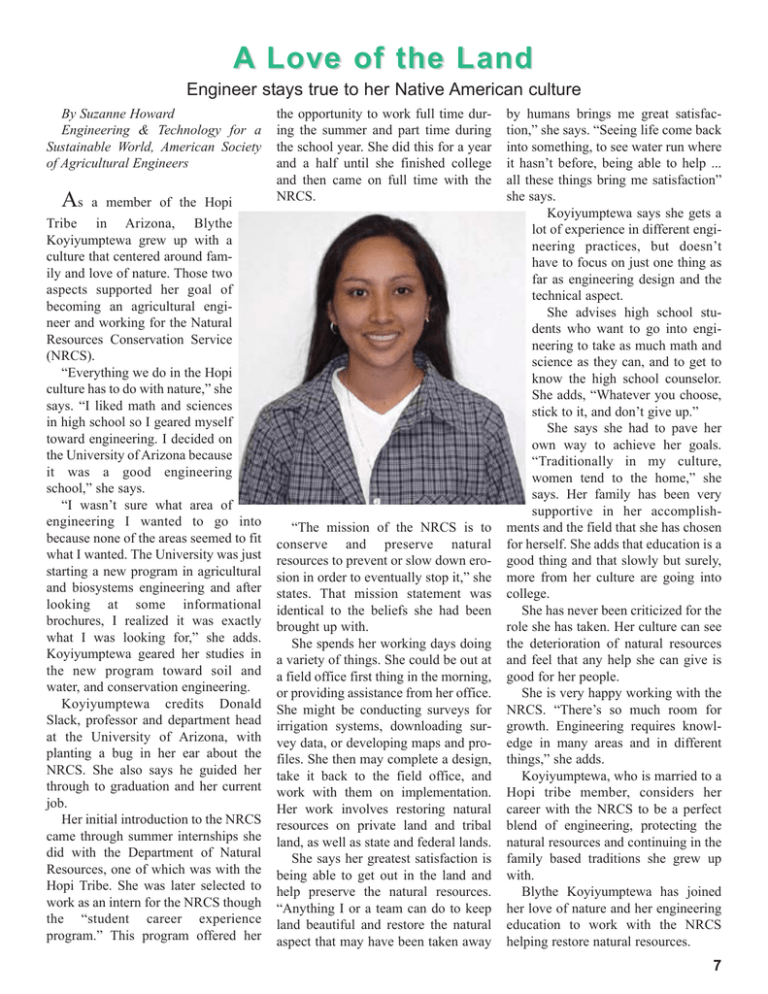
A Love of the Land Engineer stays true to her Native American culture By Suzanne Howard Engineering & Technology for a Sustainable World, American Society of Agricultural Engineers As a member of the Hopi Tribe in Arizona, Blythe Koyiyumptewa grew up with a culture that centered around family and love of nature. Those two aspects supported her goal of becoming an agricultural engineer and working for the Natural Resources Conservation Service (NRCS). “Everything we do in the Hopi culture has to do with nature,” she says. “I liked math and sciences in high school so I geared myself toward engineering. I decided on the University of Arizona because it was a good engineering school,” she says. “I wasn’t sure what area of engineering I wanted to go into because none of the areas seemed to fit what I wanted. The University was just starting a new program in agricultural and biosystems engineering and after looking at some informational brochures, I realized it was exactly what I was looking for,” she adds. Koyiyumptewa geared her studies in the new program toward soil and water, and conservation engineering. Koyiyumptewa credits Donald Slack, professor and department head at the University of Arizona, with planting a bug in her ear about the NRCS. She also says he guided her through to graduation and her current job. Her initial introduction to the NRCS came through summer internships she did with the Department of Natural Resources, one of which was with the Hopi Tribe. She was later selected to work as an intern for the NRCS though the “student career experience program.” This program offered her the opportunity to work full time during the summer and part time during the school year. She did this for a year and a half until she finished college and then came on full time with the NRCS. “The mission of the NRCS is to conserve and preserve natural resources to prevent or slow down erosion in order to eventually stop it,” she states. That mission statement was identical to the beliefs she had been brought up with. She spends her working days doing a variety of things. She could be out at a field office first thing in the morning, or providing assistance from her office. She might be conducting surveys for irrigation systems, downloading survey data, or developing maps and profiles. She then may complete a design, take it back to the field office, and work with them on implementation. Her work involves restoring natural resources on private land and tribal land, as well as state and federal lands. She says her greatest satisfaction is being able to get out in the land and help preserve the natural resources. “Anything I or a team can do to keep land beautiful and restore the natural aspect that may have been taken away by humans brings me great satisfaction,” she says. “Seeing life come back into something, to see water run where it hasn’t before, being able to help ... all these things bring me satisfaction” she says. Koyiyumptewa says she gets a lot of experience in different engineering practices, but doesn’t have to focus on just one thing as far as engineering design and the technical aspect. She advises high school students who want to go into engineering to take as much math and science as they can, and to get to know the high school counselor. She adds, “Whatever you choose, stick to it, and don’t give up.” She says she had to pave her own way to achieve her goals. “Traditionally in my culture, women tend to the home,” she says. Her family has been very supportive in her accomplishments and the field that she has chosen for herself. She adds that education is a good thing and that slowly but surely, more from her culture are going into college. She has never been criticized for the role she has taken. Her culture can see the deterioration of natural resources and feel that any help she can give is good for her people. She is very happy working with the NRCS. “There’s so much room for growth. Engineering requires knowledge in many areas and in different things,” she adds. Koyiyumptewa, who is married to a Hopi tribe member, considers her career with the NRCS to be a perfect blend of engineering, protecting the natural resources and continuing in the family based traditions she grew up with. Blythe Koyiyumptewa has joined her love of nature and her engineering education to work with the NRCS helping restore natural resources. 7

